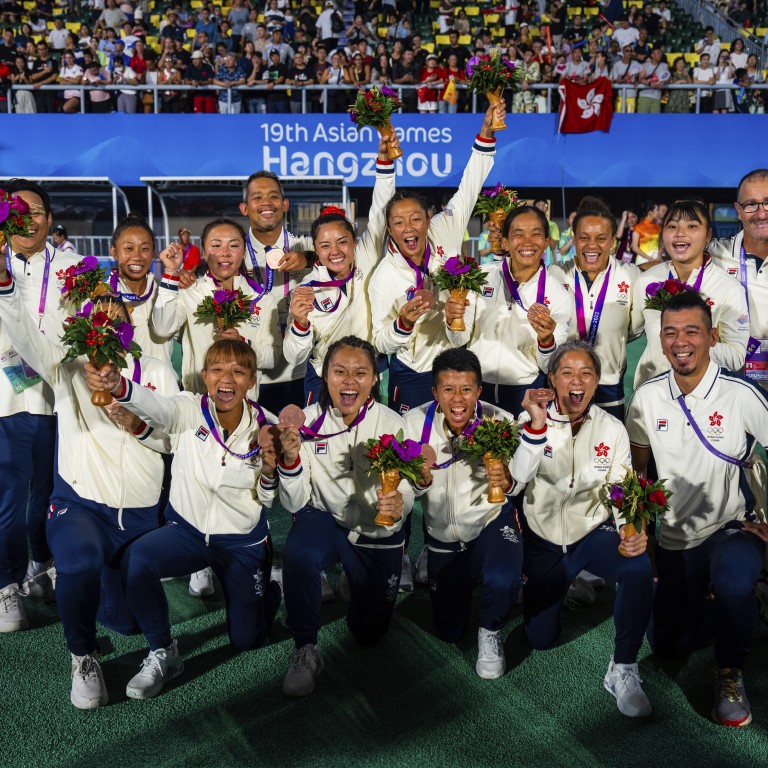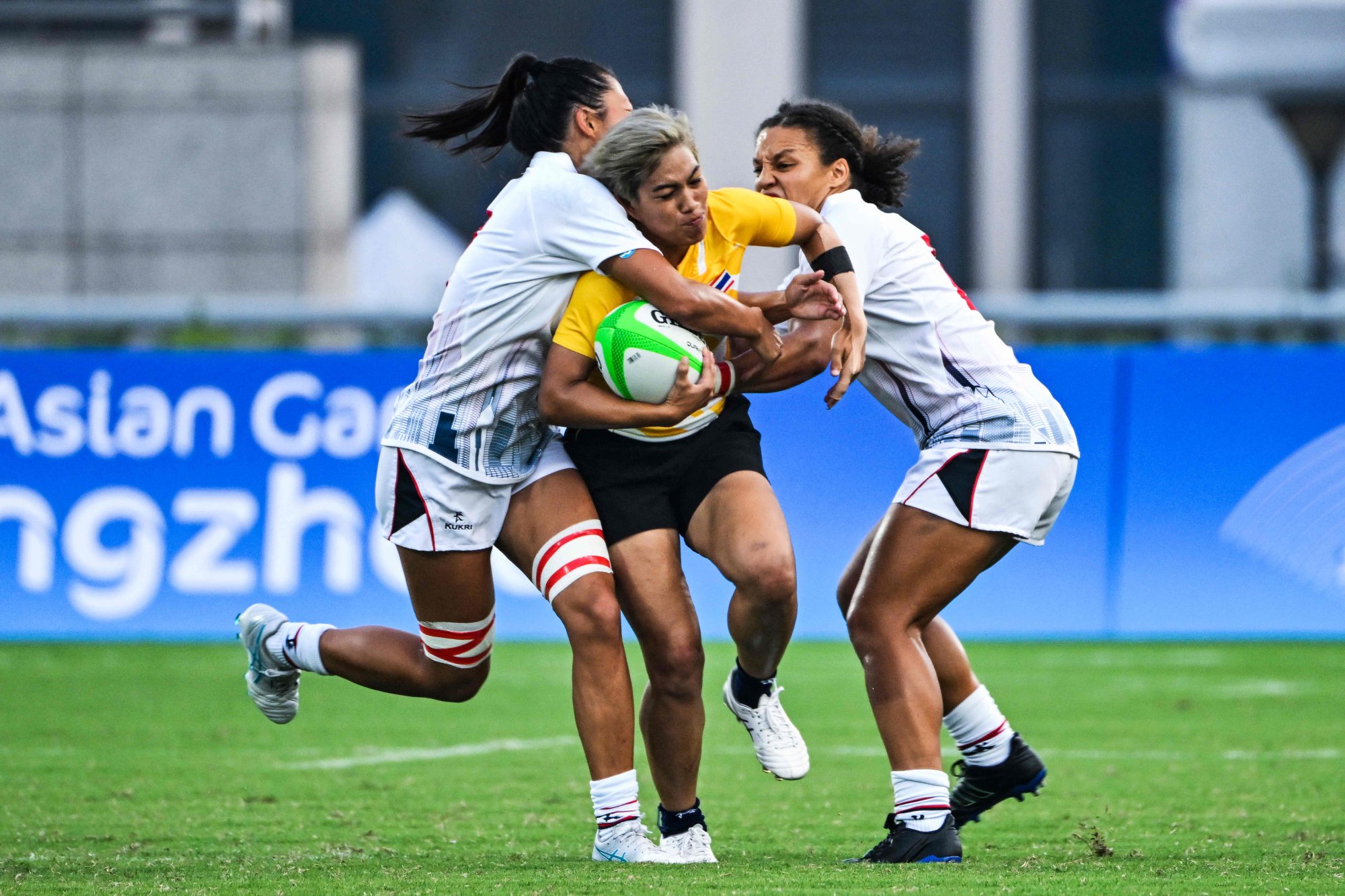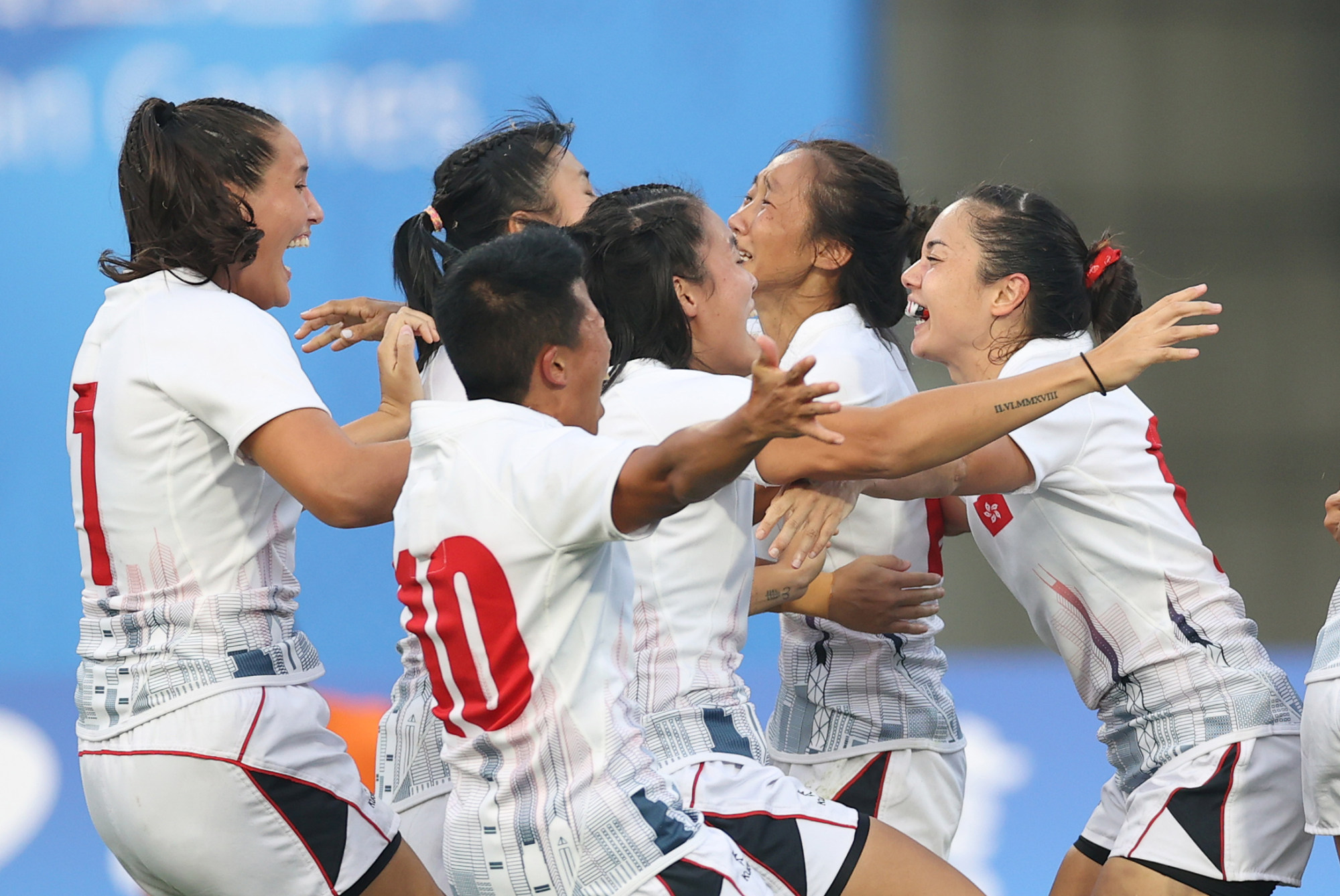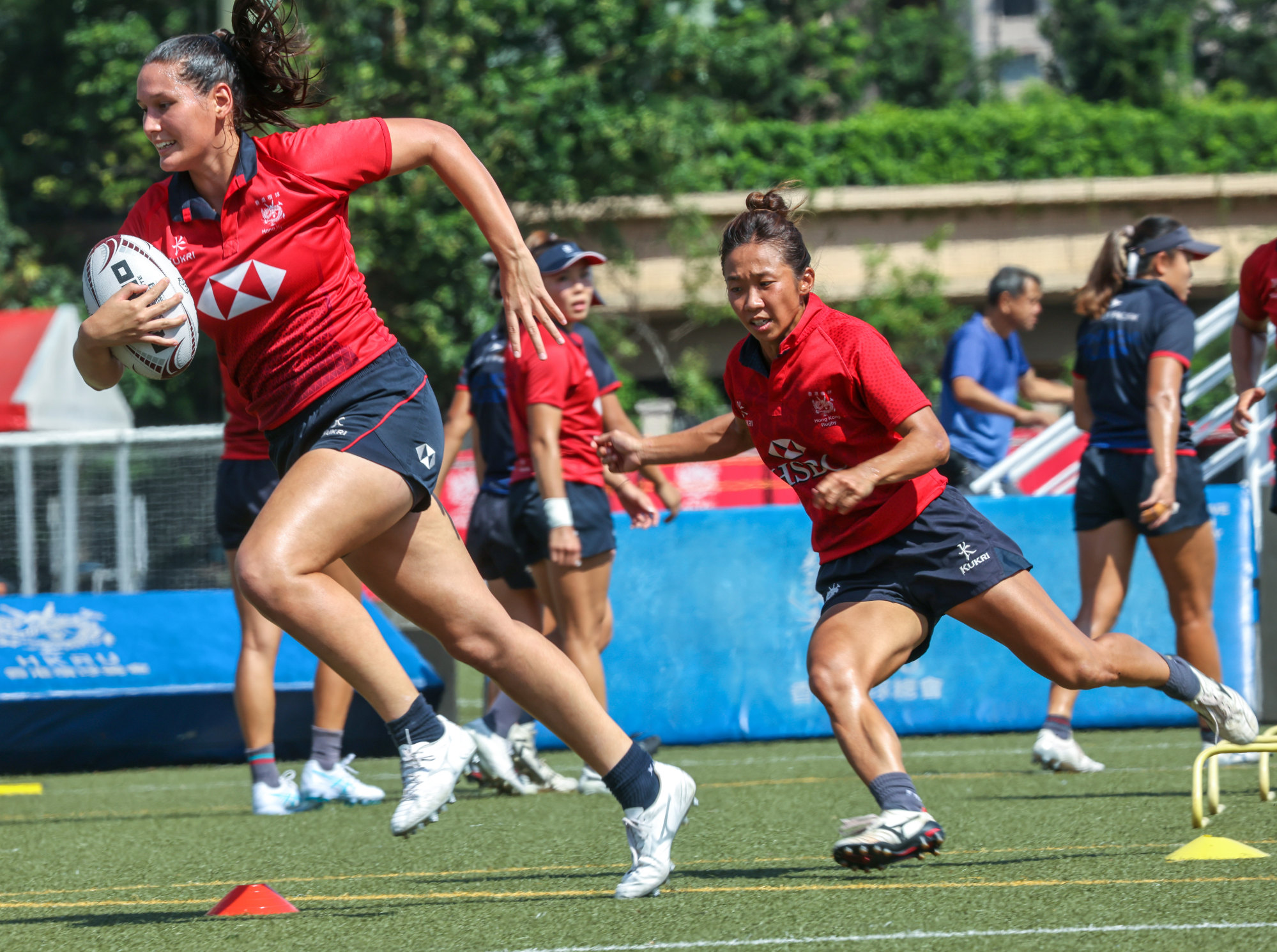
Japan and China lead Asia in women’s rugby sevens, but Hong Kong coach has a plan
- Andy Vilk aims to accelerate development of ‘exciting crop of youngsters’ to rein in the Asian powerhouses
- Attention turns to the Challenger Series, with tournaments in Uruguay in March and Poland in May, following January’s opener in Dubai
Andy Vilk said Hong Kong would aim to accelerate the development of an “exciting crop of youngsters”, as the head coach bids to rein in Asian powerhouses Japan and China.
Hong Kong finished third at this month’s Olympic qualification tournament in Japan, booking a spot at the repechage competition next year, when one Paris 2024 berth is available.
Englishman Vilk masterminded the women’s team’s first Asian Games medal-winning campaign, when they secured bronze in Hangzhou in September, and achieved qualification for next year’s World Rugby Sevens Challenger Series following strong outings in both legs of the Asia Rugby Sevens Series.
Hong Kong were dealt a salutary lesson in the Olympic qualifiers, however, losing a semi-final against Japan by a 28-point margin, after going down 50-0 to China in the pool stage.
Vilk said the 12-0 victory over Thailand to secure third position – and the final repechage slot – showed his team’s “resilience, application and hunger”.

After a whirlwind opening three months in the job, Vilk can finally come up for air. He is considering tweaks to the coaching and training programmes at Hong Kong’s Sports Institute base, where Paul John, head of the elite sevens athlete programme, oversees what Vilk called a “stimulating environment, focused on learning and adapting”.
A recent training camp in Malaga, where Hong Kong played against Great Britain and Spain, doubled as part-preparation for January’s opening Challenger Series leg in Dubai, and opportunities for emerging players to be “exposed to the best level of sevens possible”.
Hong Kong sevens head coach plotting rebuild after failed Olympic qualifying bid
“We have a really exciting crop of youngsters, and a wider group have been training with us,” Vilk said.
“Some of them gained 40-50 minutes of game time against World Series teams in Malaga. That is not always possible in tournaments, where there is more focus on results.
“We are continuously looking for developmental opportunities … to give them exposure and experience as early as we can.”
Hong Kong finished top of the pile at the Asia Rugby U20 Sevens tournament in August, and were third at the under-18 equivalent last month.

The seniors can lay legitimate claim to being the continent’s third-best team, too, after backing up their 7-5 Asiad victory over Thailand with success against the same opponents last week.
“The scoreline looked more flattering this time, but it was tense,” Vilk said. “Thailand are combative, and fight until the last whistle.
“China and Japan are both physical and fast, we want to close the gap, and consistently compete with them. I am not going to put a time frame on that – but the girls are getting faster and stronger, and the more time we spend together, with the chance to play high-level tournaments, the closer we will get.”
The three-leg Challenger Series calendar features tournaments in Uruguay in March, and Poland in May, following the January Dubai opener.

The 12-team competition, which provides a gateway to the elite World Rugby Sevens Series, features a smorgasbord of global opposition, including Argentina, Papua New Guinea, Uganda and Belgium.
“It is an exciting time for the group, and the momentum from the past three months has created a good vibe,” Vilk said. “The players are achieving consistency, and work so hard for each other.
“We are establishing the core skills that align with our identity, and working on what we need to add or adapt, for playing different teams.
“When we come back, we have to consider the mental, physical, and tactical aspects of performance, so we peak at the right times over a busy six months. That is the exciting part of the coaching challenge.”

